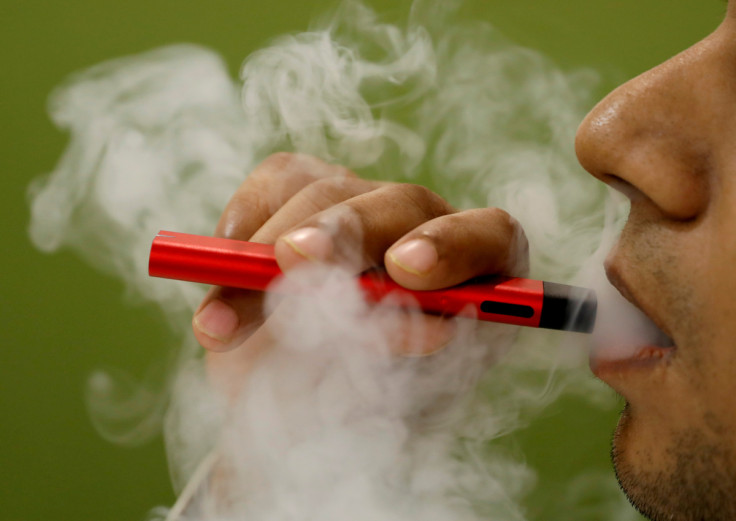This Asian Country Has Banned Vaping, Calling It a 'Drug Issue' – Should the UK Follow?
Singapore's sweeping vape ban reframes e-cigarettes as a drug threat—as the UK tightens its own regulations, is it time to rethink our approach?

Singapore has intensified its anti-vaping crackdown, declaring the habit a 'drug issue' rather than a tobacco problem.
Prime Minister Lawrence Wong announced at the National Day Rally 2025 that sellers and users now face stiff jail terms, mandatory rehabilitation programmes, and harsher penalties.
'So far, we've treated vaping like tobacco – at most, we impose a fine. But that's no longer enough,' Wong said. 'We will treat this as a drug issue, and impose much stiffer penalties.'
The shift follows a surge in seizures of illegal e-vaporisers: the Health Sciences Authority (HSA) confiscated more than $41 million worth between January 2024 and March 2025, compared with just $95,460 in 2019.
Vapes Laced with Dangerous Drugs

A key driver of the policy change is the rise of Kpod vapes, some of which were found to contain etomidate, an anaesthetic agent, and in other cases, ketamine. Both drugs carry serious risks, including seizures, erratic behaviour, and dependence-like symptoms.
In the first half of 2025 alone, 28 cases of etomidate-laced vapes were detected, nearly three times the previous year's figure. One-third of all randomly tested vapes were tainted with the drug.
The government now plans to classify etomidate as a Class C controlled substance under the Misuse of Drugs Act, bringing in mandatory rehabilitation and harsh sentencing for distributors and users alike.
UK's Approach: Regulation Over Prohibition
The UK's Tobacco and Related Products Regulations 2016 (TRPR) neither entirely ban nor fully embrace vaping. Instead, it focuses on harm reduction for adult smokers while implementing strict controls to protect young people.
These regulations form the backbone of the UK's vaping policy. Key provisions include:
- Nicotine Strength Limits:
Maximum of 20 mg/mL to reduce addiction potential. - Packaging Requirements:
Must include health warnings, avoid misleading claims, and be child-resistant. - Advertising Restrictions:
Vaping products cannot be advertised on television, radio, in newspapers, or on online platforms that target youth. - Product Notification:
Manufacturers must notify authorities before launching new products, ensuring safety and compliance.
Strengthening the Rules: Tobacco and Vapes Bill 2025
In response to rising youth vaping rates, the UK government is introducing stricter measures:
| Policy | Details |
|---|---|
| Ban on Disposable Vapes | From June 2025, single-use vapes will be prohibited due to environmental concerns and youth appeal. |
| Minimum Pricing for Vape Kits | Aimed at reducing affordability for minors and discouraging casual experimentation. |
| Restrictions on Prefilled Pod Kits | May include limits on nicotine content, flavour variety, and marketing tactics. |
| Flavor Regulations | Potential bans on sweet, fruity, or candy-like flavours that disproportionately attract young users. |
Public Health Campaigns & Messaging
The UK's dual messaging strategy is unique:
- For Youth:
Launches targeted campaigns in schools and online to highlight the risks of nicotine addiction and discourage underage use. - Healthcare Integration:
NHS smoking cessation programs now include e-cigarettes as part of their toolkit for quitting tobacco.
Global Context: Understanding the UK's Vaping Strategy
While countries like Australia and India have imposed strict bans, the UK's model is often cited as a progressive compromise:
- Encourages smoking cessation
- Limits youth exposure
- Maintains consumer safety standards
- Addresses environmental concerns (e.g., disposable vape waste)
Should the UK Follow Singapore's Lead?
While Singapore's approach is rooted in drug enforcement, the UK's strategy remains focused on public health and harm reduction. Experts warn that a blanket ban could drive vaping underground, making it harder to regulate and potentially more dangerous.
However, the rise in youth vaping, particularly through flavoured disposables, has prompted calls for stricter controls. Some MPs have suggested flavour bans and plain packaging, echoing Singapore's concern over products that appeal to minors.
The Bigger Picture
As more nations grapple with the rise of vaping, one fact is apparent: it is no longer seen as just a tobacco alternative.
From Singapore's drug-control crackdown to the UK's harm-reduction balancing act, the debate underscores a global struggle to protect young people, safeguard public health, and address the evolving risks of nicotine consumption.
© Copyright IBTimes 2025. All rights reserved.





















